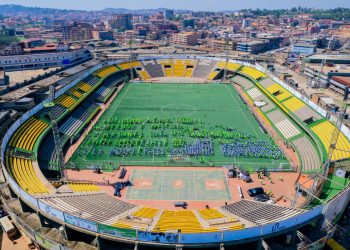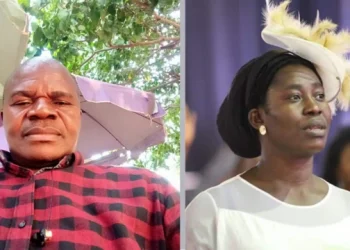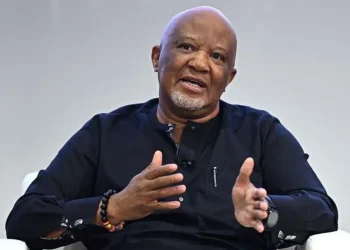As the Christmas season approaches, Christians in Syria are grappling with fear and uncertainty under new Islamist leadership, despite assurances of safety and religious freedom. Syrian church leaders have advised their congregations to significantly scale back Christmas celebrations this year. The decision reflects the deep mistrust that has developed after decades of authoritarian rule and a brutal civil war that has left scars across the nation’s diverse religious and ethnic communities.
Ahmed al-Sharaa, the de facto ruler of Hayat Tahrir al-Sham (HTS), a group once affiliated with al-Qaeda, has promised a new era of tolerance and inclusivity under his leadership. Sharaa, now presenting himself in Western-style business attire instead of his former jihadist uniform, has pledged to protect Syria’s Christian minority, along with other religious and ethnic groups. He has also assured Western officials that HTS will not seek revenge against the remnants of Bashar al-Assad’s regime, primarily composed of the Alawite sect, nor will it suppress other minorities.
However, these promises have yet to allay the fears of many Christians. Recent events have only reinforced their anxiety. On December 18, unidentified gunmen attacked a Greek Orthodox church in Hama, attempting to destroy a cross and vandalizing the church’s cemetery. In another incident, vehicles with speakers blaring jihadist songs drove through Bab Touma, a predominantly Christian neighborhood in Damascus, leaving residents unnerved. A photograph circulating on social media showing an armored vehicle with the ominous message “Your day is coming, Oh worshippers of the cross” has further heightened tensions.
Christian leaders, such as Bishop Andrew Bahhi of St. George’s Syriac Orthodox Church, have expressed both concern and cautious optimism. While Bahhi acknowledged the gravity of these incidents, he also noted HTS’s swift response in addressing them. The group forced the driver of the armored vehicle to remove the inflammatory message and apologize, and the vandals in Hama were quickly arrested. “The community is watching to see if the groups currently in power are genuinely committed to establishing a civil society that offers equal opportunities for all,” Bahhi said.
Deep Scars of War and Mistrust
Syria’s Christian community, like many of the nation’s minorities, remains deeply scarred by the civil war. The conflict has fractured trust among various groups, and the presence of armed Islamist militants patrolling Christian neighborhoods does little to ease their fears. The sight of armed men and the memory of past violence weigh heavily on the community.
The country’s historic mosaic of minorities includes Muslim Kurds, Shi’ites, Druze, Syriac Christians, Greek Orthodox Christians, and Armenian Orthodox Christians. For years, these groups coexisted uneasily under Assad’s authoritarian rule. However, the rise of Sunni Islamist factions during the war has left many fearing for their future. This anxiety is compounded by memories of targeted violence during the conflict.
One poignant story is that of Emilia Katarina, a Christian widow who has endured immense personal tragedy. Emilia lost her son, Firas Azar, and her husband to the war. Firas disappeared after being detained at a government checkpoint in 2012 while planning his wedding. Two years later, Emilia’s husband was killed, and she and her daughter, Mary, were injured when a rebel shell hit their home. The pain of these losses remains raw. “Whenever I hear a sound at night, I jump. Fear is deeply ingrained in us,” Emilia said, clutching a photograph of her son.
For Emilia and others like her, the new leadership’s reassurances mean little. “The ideology does not change in an hour,” Mary added, reflecting the widespread skepticism towards HTS and its promises.
Cautious Optimism Amid Ongoing Challenges
Despite the challenges, HTS has made efforts to engage with Christian leaders. Shortly after Assad’s fall, a representative of HTS met with Bishop Bahhi and other church leaders, urging them not to fear. However, Bahhi and others remain cautious. “How truthful and serious he is? We don’t know,” Bahhi said, encapsulating the uncertainty felt by many.
Even if HTS succeeds in building trust, Syria’s Christians must also contend with the presence of other armed Islamist factions, whose ideologies and actions may further threaten their security. For now, church leaders are urging their congregants to take precautions. Bishop Bahhi has advised young people to dress modestly, keep images of Father Christmas within church premises, and forgo the traditional street distribution of sweets.
For Syria’s Christian minority, this Christmas will be marked by restraint and reflection rather than celebration. At St. George’s Church, during a sermon on keeping faith in difficult times, tears streamed down Emilia’s face. She rose to light a candle, whispering a prayer for her son’s return. “Maybe God will answer my prayers,” she said, her voice filled with both hope and despair.
The Path Ahead
Syria’s new rulers face a monumental task in rebuilding trust among the country’s diverse communities. The years of war have left deep wounds, and it will take more than words to heal them. For Syria’s Christians, the path to feeling safe in their homeland once more is fraught with challenges. As the community watches the actions of HTS and other groups, their prayers this Christmas are not just for peace, but for the reassurance that their place in Syria’s rich cultural tapestry will be protected.









